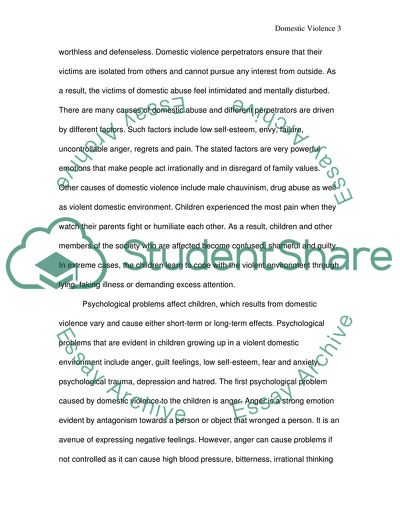Cite this document
(“The Impact of Domestic Violence on Children Essay”, n.d.)
The Impact of Domestic Violence on Children Essay. Retrieved from https://studentshare.org/psychology/1735806-psychology-the-impact-of-domestic-violence-on-children
The Impact of Domestic Violence on Children Essay. Retrieved from https://studentshare.org/psychology/1735806-psychology-the-impact-of-domestic-violence-on-children
(The Impact of Domestic Violence on Children Essay)
The Impact of Domestic Violence on Children Essay. https://studentshare.org/psychology/1735806-psychology-the-impact-of-domestic-violence-on-children.
The Impact of Domestic Violence on Children Essay. https://studentshare.org/psychology/1735806-psychology-the-impact-of-domestic-violence-on-children.
“The Impact of Domestic Violence on Children Essay”, n.d. https://studentshare.org/psychology/1735806-psychology-the-impact-of-domestic-violence-on-children.


